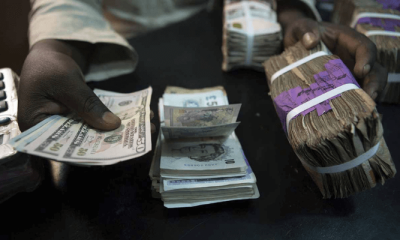…as naira appreciates N260/$1
Banks are increasingly finding it difficult to source for forex to service their obligations thereby increasing the cost of borrowing that now stands at 50-200 basis points higher than three-to-six months ago, says a report by the Renaissance Capital (RenCap), a financial advisory and research firm.
RenCap said banks may be limited in their ability to pass on higher pricing to the already stressed customers. In addition, the report pointed out that Nigeria is dependent on imports, which Nigerian banks facilitate via the opening of letters of credit (LC). The customer typically repays these after imports are sold; the customer therefore earns naira, then approaches the banks to source forex from the CBN (or goes to the black market), with which the correspondent bank is repaid
RenCap opined that should the forex scarcity persist in a weak oil price environment, banks’ asset quality and international obligation default risks could be significant. The firm listed some of the challenges being faced by banks and businesses in the country to include scarcity of forex for imports, complaints by correspondent banks, and maturing forex obligations.
Commercial banks in the country recently stopped the use of ATM debit and credit cards abroad, a move that had since been supported by the central bank. In his reaction to this, the CBN’s Director, Monetary Policy, Mr. Moses Tule, said the restrictions on the use of electronic payment cards abroad would likely be lifted when reserves increase to between $50 billion and $200 billion, adding that all hands must be on deck to achieve the target.
He said the new policy was a healthy development for the ailing economy in spite of the attendant inconvenience to cardholders. According to Tule, foreign exchange under the condition Nigeria has found itself has become a seasonal commodity. “Our priorities as a nation for the allocation or use of foreign exchange is one, for the settlement of matured letters of credit that have been opened for importation; two, for the importation of petroleum products until such a time either when we have our refineries fully operational and we are not in a position to import fuel again to ensure that the wheels of economic development continue turning and running; and three, for the importation of raw materials,” he explained.
Meanwhile the naira edged higher yesterday to about N260 to a US dollar on the parallel market, as against the N266 to a US dollar recorded before the holiday last week.
National Daily gathered the increase was as a result of the increase in the supply of the dollar from autonomous market, especially from Nigerians abroad who visited the country for the yuletide.
The naira had depreciated to about N280 to the dollar about three weeks ago as a result of dollar scarcity that hit the market. The declining oil prices as well as the unwillingness of the Central Bank of Nigeria (CBN) to devalue the naira amidst constrained reserves has continued to worsen foreign exchange (forex) liquidity position of Nigerian banks, the report by RenCap stated.

 Aviation1 week ago
Aviation1 week ago
 Business6 days ago
Business6 days ago
 Business5 days ago
Business5 days ago
 Education5 days ago
Education5 days ago
 Crime6 days ago
Crime6 days ago
 Business1 week ago
Business1 week ago
 Business6 days ago
Business6 days ago
 Covid-195 days ago
Covid-195 days ago













